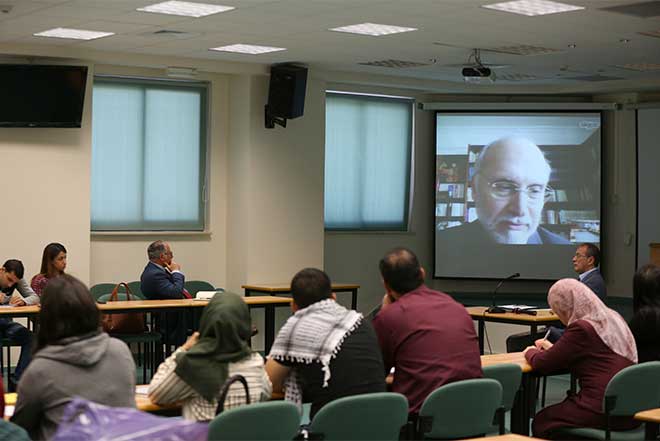Lebanese Intellectual Explores Arab Uprising, its Future Prospects
The future of the Arab uprising and its impact were addressed in a lecture offered by the Lebanese writer and socialist Gilbert Achcar. The professor of Development Studies and International Relations at the School of Oriental and African Studies of the University of London spoke via skype on April 7, 2016 at Birzeit University.
The lecture was organized by the Social Studies doctoral program at Birzeit University to discuss the causes and deep roots of regional social and economic problems and discuss the prospects for reform, collapse, or return to the status quo across the countries of the Arab region after the uprising.
Keynote speaker Achcar noted that the term “Intifada” best describes the revolutionary wave that occurred in the Arab region. He emphasized that the year 2011 was only the beginning of a long-term revolutionary process that will go on for decades.
Achcar explained that a political explosion as occurred in 2011 must necessarily be triggered by a convergence of various factors. “This ‘spring’,” he said, “was the result of a cultural and political mutation born by a new generation connected to global culture, information and communication technologies. An uprising is a struggle for political freedom, democracy and economic development.”
The Arab uprising started in Tunisia on December 17, 2010 in a wave of revolutionary fever that spread across the Arab world. Citizens took to the streets demanding dignity, democracy and social justice. Mass mobilizations took place in Tunisia, Egypt, Libya, Bahrain, Yemen and Syria.







